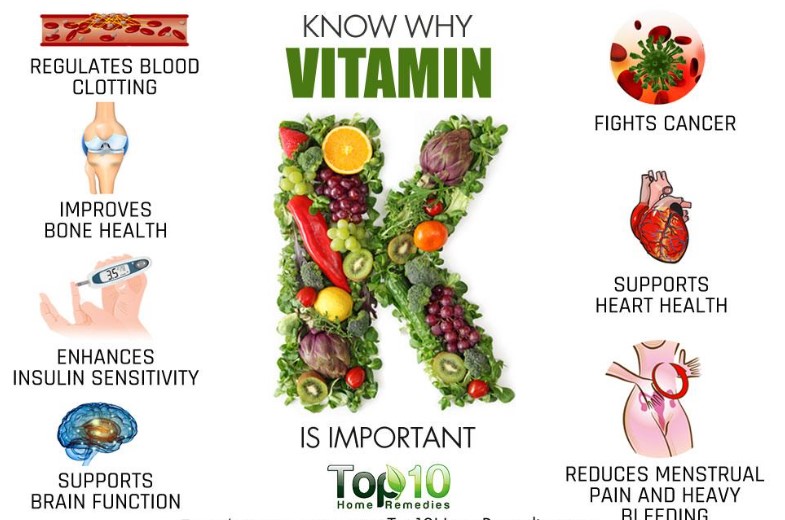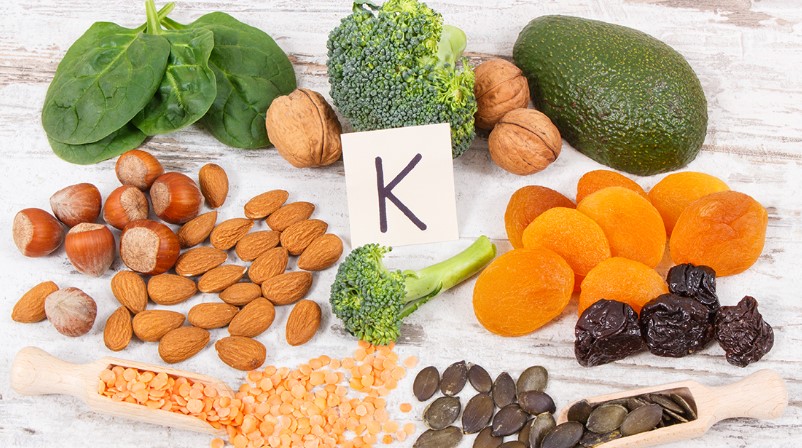Vitamin K is an important nutrient, and there are many ways to get ithttps://livewellslatest.com/vitamin-k-benefits/. Some benefits of vitamin K include helping to prevent blood clots and preventing hemorrhages. A deficiency of vitamin K can cause excessive vomiting and hemorrhaging in pregnant women. Supplementing with vitamin K will not only improve the health of a mother, but also her unborn child. Infants are also given a vitamin K injection to help prevent hemorrhage. Even asthmatic children need a vitamin K supplement. Oral drops are also available for these children.
Vitamin K is a fat-soluble vitamin and refers to a group of organic compounds that play a role in blood clotting, bone metabolism, and regulating blood calcium levels. Vitamin K is needed for the production of prothrombin, a protein, which is the clotting factor important in blood clotting and bone metabolism. Deficiency of vitamin K causes serious problems leading to diseases like hemhorragic disease of newborns (HDN) and osteoporosis. It has also been found to be useful in the treatment of cancer as well.

Phylloquinone
Phylloquinone and vitamin K benefits are often discussed, but the details are still up for debate. Several studies have shown some promise. A study of 72,000 women conducted by the Nurses’ Health Study found that low phylloquinone intake is associated with a 30% increased risk of hip fracture. Another study found that both vitamin K1 and vitamin K2 increased the risk of osteoporotic fractures.
Two randomized placebo- controlled studies have found that dietary supplements containing phylloquinone and vitamin K improve bone health. However, observational studies have limited the power of causal inferences. Clinical trials are necessary for determining whether or not a vitamin K supplement improves bone health. Fortunately, however, several studies on vitamin K supplementation have revealed promising results. Therefore, it is a good idea to talk to your doctor and get the information you need.
Increasing dietary intake of menaquinones is associated with improved bone health and lower cardiovascular risk. In addition, phylloquinone may also be beneficial for people with vitamin A deficiency. The results of these studies have been encouraging, and the benefits of vitamin K can be realized by a healthy lifestyle. However, further studies are needed to determine if vitamin K is beneficial in patients with chronic kidney disease or has a detrimental effect on bone health.
Although the benefits of vitamin K and phylloquinone are not clear, there is some evidence to suggest that these nutrients may help lower the risk of stroke. In a prospective study of 7,216 healthy older adults at risk for cardiovascular disease, phylloquinone intake was linked with a lower risk of coronary heart disease. However, the researchers cautioned that there was no conclusive evidence that vitamin K and menaquinone intake can lower the risk of stroke.
Despite being used interchangeably in the food industry, dietary menaquinones are often consumed in lower amounts than phylloquinone. The dietary menaquinones are considered the paradigm shift in vitamin K nutrition research, and are now a part of the DRV for vitamin K. Their chemical structures are different from each other, thereby altering their absorption and bioavailability.

People with blood- thinning medications should discuss phylloquinone and vitamin K benefits with their health care provider. It is also important to consult a health care provider before taking vitamin K supplements. These supplements may be more beneficial for people with conditions that prevent them from absorbing vitamins, such as cystic fibrosis. In addition, patients with gastrointestinal conditions like Crohn’s disease may have difficulties absorbing vitamin K.
Ultimately, vitamin K is essential for normal blood clotting and bone metabolism. It helps maintain proper calcium levels in the body, which is important for forming and maintaining strong bones. In addition to this, vitamin K can help lower the risk of calcification of certain arteries and heart diseases. One can consume sufficient vitamin K through diet alone; however, some people may benefit more from taking a supplement to ensure they are getting enough. The Recommended Dietary Allowance (RDA) of Vitamin K is 90 micrograms per day. It is important to remember that excess vitamin K intake can be toxic and cause a variety of symptoms including seizures, low blood pressure, nausea, vomiting, headaches, stomach pain, and diarrhea.








